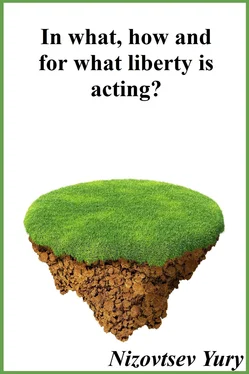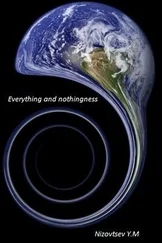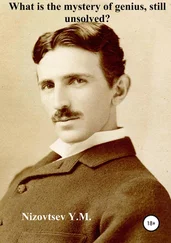In what, how and for what liberty is acting?
Rest only dreams us.
Alexander Blok
Liberty – the sister of chaos.
There is no liberty without aspiration, and aspiration – without discontent by yourself.
Chapter 1
The affiliation and mission of liberty in life of the human.
Debate goes no one thousand years about concept of liberty. However the sense of liberty is still unclear, treatments are unilaterally or they are unconvincing.
Someone understands it as will, others extend this concept to the natural phenomena, third tie her to a human choice, fourth connect it with necessity, fifth believe that human liberty depends entirely on society and by society is defined, sixth in general deny liberty replacing it by predetermination, the seventh rely in everything on God etc.
Let's give some definitions of liberty.
Liberty – the idea reflecting such relation of the subject to own actions at whom he is their defining reason, and they immediately are not caused by natural, social, interpersonal-communicative and individual-patrimonial factors.
Here liberty is at first an idea, then it is the relation and, finally, it is the reason. Whether not too there are a lot of heterogeneous concepts? Outwardly all it seems very reasonable in this definition, but it is reduced to the human who is considered by the reason of liberty. It and is so clear. But that such is available in the human that he became by the reason of liberty does not reveal.
Liberty is domination over circumstances competently.
Here liberty is the knowledge thanks to which everything has to turn out. And if knowledge does not help, what, liberty will disappear? The knowledge, information is some conditions for manifestation of liberty, but conditions are not so sufficient. The knowledge can be both without the use and with the inadequate use.
Besides, there is no action in knowledge – in itself it is dead: information without use turns into a warehouse. The knowledge, in principle, cannot be the complete, and the person substantially has it as misinformation, following which he comes to crash. Here more likely circumstances dominate over us, and the person – their victim. Not for nothing speak: "A lot of knowledge – many afflictions".
Liberty is an ability to make a choice on the basis of distinguishing of good and evil.
This definition of liberty too approves priority of knowledge for liberty, only no dealings, and certain moral categories that, in itself, is the whole problem. Still nobody knows of it. Something seems by evil for some people, it's the same – good for others. What is here liberty! Anybody has no such ability and cannot has at least because in our world all life is based on an antagonism, and for the person the purpose, the aspiration of his rival cannot be good in any way and often promises to him death. The abstract good or the evil does not exist.
Liberty is possibility of manifestation by the subject of will on the basis of understanding of laws of development of the nature and society.
In this definition to knowledge about which was told above, will as a certain effort for the aid to knowledge is added. To realize even, it seems, the correct laws though in many cases, the laws formulated by limited people, at all no truth, and the delusion, for example, laws of social development, is not enough for their adequate application. Therefore similar application of will on the basis of laws can lead not to liberty, and to bondage that in the history was happening too often, especially in Russia.
On the other hand, if as will to understand realized desire of the person and his ability to conscious management of the acts in decision-making process for achievement of the goals coinciding with its motives, or objectified requirements, as well as that will – a product partly the genetic, partly bringing up by a surrounding medium, will, as well knowledge, cannot be by the cause of acts of the person. Will is more additional motivation, it induces the person to act to some persistence, determination, initiative, but she on herself or in a combination to knowledge instead of liberty can send the person to slavery to a subject or idea to which it forces him to go, will forces the person to make acts according to the chosen purpose, i.e. is not free, and forced. Not it accepts final decisions, it only promotes their achievement. Will generally is not a product of consciousness, and it is a product of the instincts and surrounding medium and will has not the direct relation, in particular, to conscious management of circumstances. Will may serve in the basic for overcoming of obstacles on the way to the purpose. Will aspires to outside, and liberty cannot be outside of the person – it is not a gift. Will maintains activity of the person or suppresses it, but does not define. Therefore it is necessary to will to add liberty as self-defining category in actions of the person. And it turns again that liberty at all does not coincide neither with will nor with knowledge and that it such – is unclear.
Liberty is that allows to the person according to his purposes to manipulate by the subjects of the outside world.
Liberty is already the deputy of God in this definition permitting to the person to live, but as well as God, it is not known what. There is no as such a definition.
Liberty is existence of possibility of a choice of options of an outcome of an event. Lack of a choice of options of an outcome of an event is equivalent to absence of liberty.
In this case "unhappy" liberty gets to dependence from a choice. You will choose not so or you do not see a choice, so there is no liberty at you? Here liberty is put in dependence on external circumstances. At such liberty the human would differ nothing from the computer which, besides, is able to choose better.
Liberty is one of types of manifestation of the randomness directed by a free will (intention of will, conscious liberty) or the stochastic law (unpredictability of an outcome of an event, unconscious liberty), i.e. something opposite to necessity.
Here liberty is arbitrariness grasped by will. If liberty is opposite of necessity, people could not create accidentally the whole civilization and much that in it make not accidental, but consciously and purposefully. Much of what people do based on their needs which arise not randomly. Even desires of the person are not arbitrariness, and proceed from his representations which are formed by an environment.
Liberty is fear releasing the person from all conventionalities of a reality.
This definition reduces liberty to nothing. It is not visible the person in this definition. Being exempted from conventionalities which represent public life, the human is exempted from himself. Liberty to the person is not needed in this case.
Liberty is the person who is projecting freely himself on freely chosen purpose.
Here Sartre strongly went too far, having told three times about liberty, but without having defined it, having noted, however, that liberty and the free person – same. Certainly, without person in our world of liberty does not exist, but that after all forces the human "to project himself on freely chosen purpose"? Perhaps it also is the liberty? Sartre did not give the answer on this question
It is curious that there is no precise definition of liberty. All of these authors of definitions of liberty "beat around the bush". The feeling is created that they define liberty like blind palpating different parts of an elephant: one, touching a trunk, says that the elephant is similar to a snake, another, feeling a foot, claims that the elephant reminds a column.
All these vague ideas of liberty point out that their authors do not know to what it can belong that it is actually and what is its mission.
Читать дальше
Конец ознакомительного отрывка
Купить книгу












